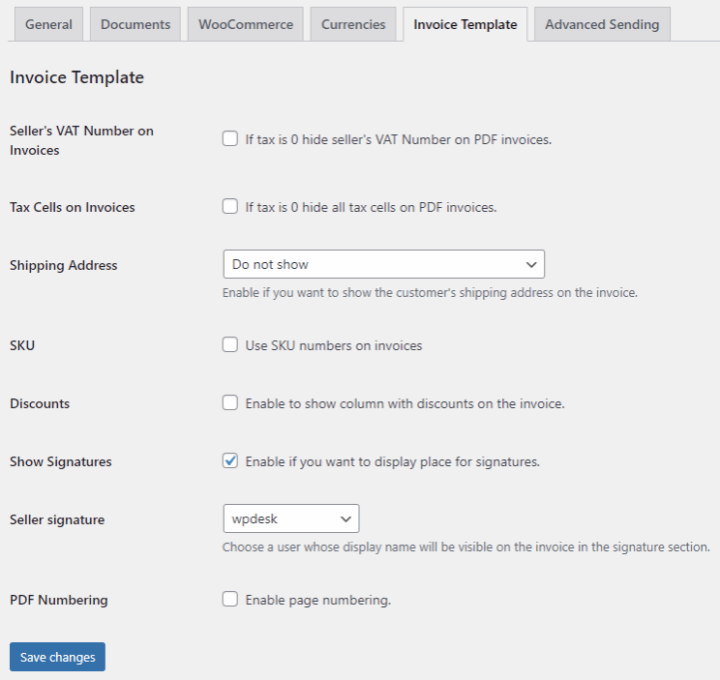In the Invoices menu, select Invoice template. Below you will see the options you can use to customize your invoices.

If you have (Beta) Gutenberg Invoice Editor enabled (in Invoices > Settings > Invoice Template) these settings will be available within the template editor. In that case, please refer to this article.
Seller's VAT Number on Invoices
It is also possible to hide the seller's VAT Number if the tax amounts to 0.
Tax Cells on Invoices
If you want to hide all tax-related columns on the invoice (and the tax amounts to 0 at the same time), check the option of hiding tax columns.
Shipping Address (PRO)
Show the recipient address of the order on the invoice. You have three options to choose from:
- do not show,
- show customer's address,
- show customer's address if different from billing.
SKU#
Select if you want to show the SKU number on the invoice.#
Discounts (PRO)
Enable to show a column with discounts on the invoice. With an unmarked feature, promotions will not be listed on the invoice.
Show Signatures
Choose whether to show a place for signatures on the invoice. If you check this option, an additional seller signature field will be displayed with available users to choose from.
Seller signature
Decide which user's display name should appear on the invoice. The select box will be available for users with store administrator status.
PDF Numbering
Enable page numbering.
Styling#
You may further style WooCommerce invoices with the Flexible Invoices PRO add-on.


